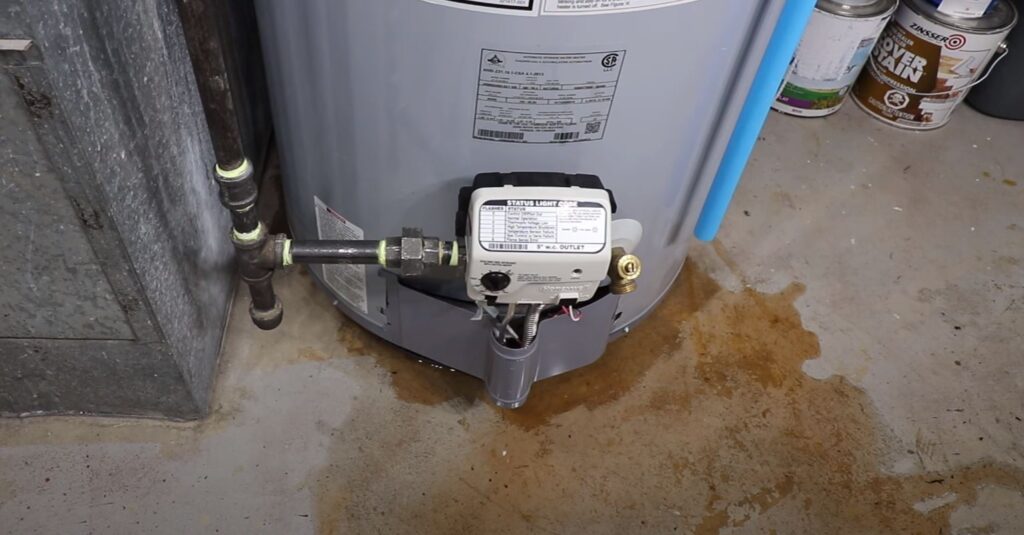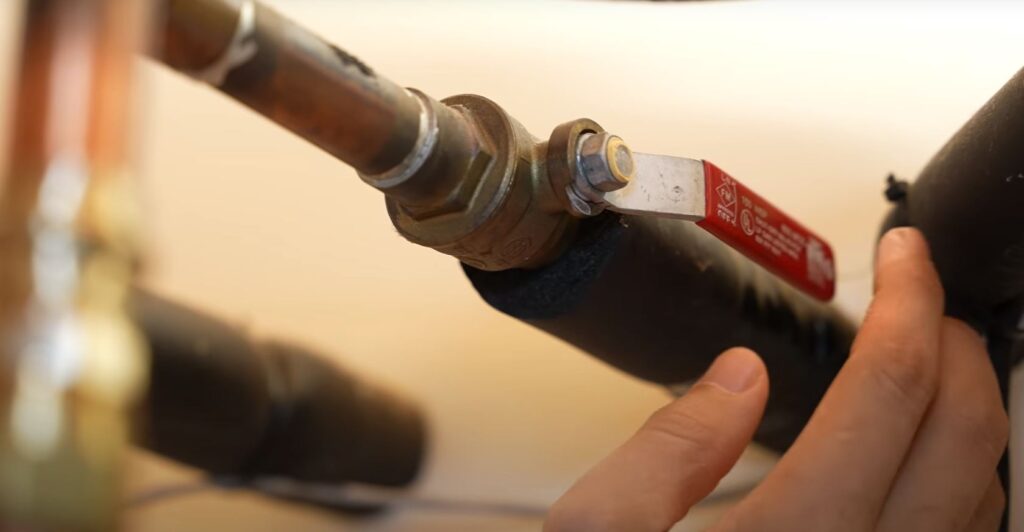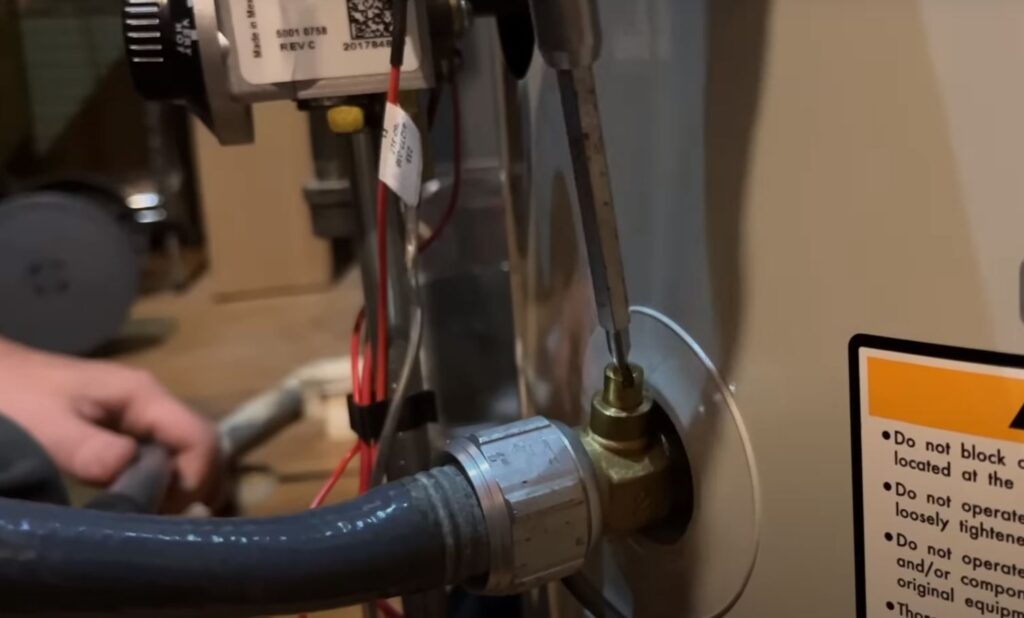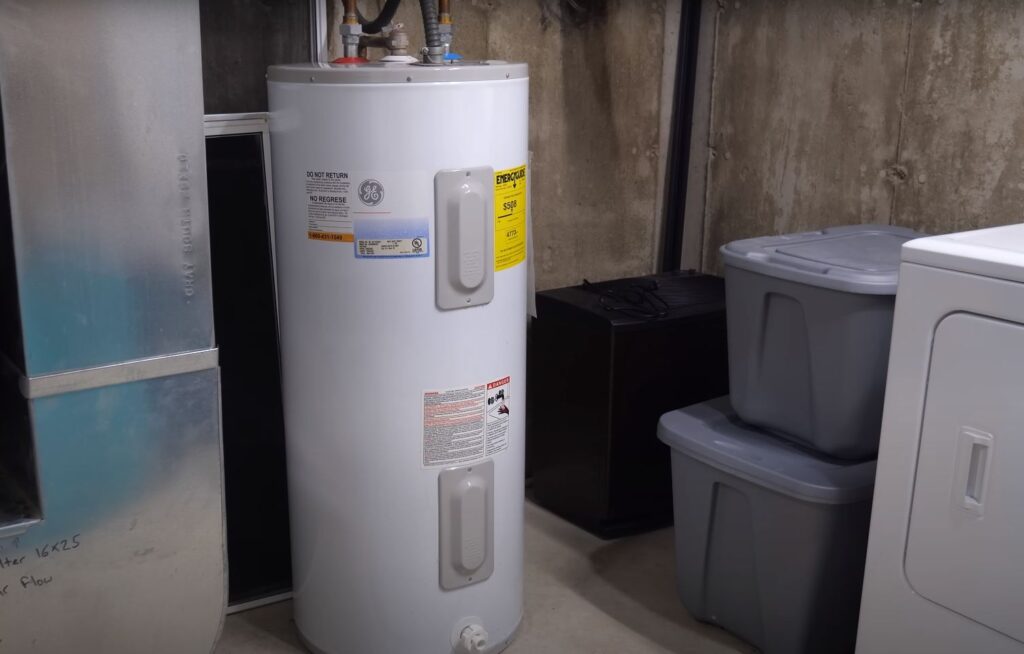Water Pooling at the Base of Your Water Heater: Causes and Solutions
The Unsettling Sign of Water
There’s nothing more concerning than discovering a pool of water around the base of your water heater. Water heaters, vital for our everyday comfort, can sometimes give us a little anxiety when they start acting up, especially if you’re not quite sure where to start troubleshooting.
Probable Causes of Water Pooling
Before panic sets in, it’s essential to understand that there can be multiple reasons for this mysterious puddle. Some common culprits include:
- Valve Issues: The pressure relief valve and the drain valve might be the source of the leak. If the pressure inside the tank becomes too high, the relief valve will release some water as a safety measure.
- Internal Tank Problems: Over time, minerals can deposit on the tank’s interior, leading to corrosion. As the tank corrodes, small holes can form, causing leaks.
- Loose Connections: The inlet and outlet connections might become loose over time. If they aren’t sealed correctly, you might find some water leakage.
- Condensation: Sometimes, the cold water entering the tank can lead to condensation on its exterior. It can appear like a leak but is merely moisture build-up.
- Worn Out Gasket: The heating element gaskets can wear out over time, and when they fail, they can cause a leak.
Risks and Health Concerns
Leaks, however small, should never be overlooked. Some associated risks include:
- Electrical Hazards: Water and electricity don’t mix. A leaking water heater can pose a risk of short circuits or, in severe cases, electrocution.
- Mould Growth: Continuous dampness can be a breeding ground for mould, which can lead to health concerns.
- Structural Damage: In homes, especially those in suburbs like Carlton, with wooden flooring, continuous leakage can lead to structural damage over time.
- Wasted Energy and Increased Bills: A malfunctioning water heater can become inefficient, leading to higher electricity or gas bills.
What Should You Do?
If you notice water around your heater:
- Switch Off: For safety, turn off the heater. If it’s electric, switch off the circuit breaker. For gas heaters, turn off the gas supply.
- Inspect the Area: Identify the source of the leak. Check the valves, connections, and tank.
- Call a Professional: If you can’t identify the source or the issue seems complex, it’s time to call in the experts, like those from Hot Water Repairs Melbourne.
Preventive Measures for the Future
Maintenance is the key. Regularly:
- Check for signs of corrosion or wear.
- Ensure the pressure is maintained at safe levels.
- Annually, flush out the tank to remove sediment build-up.
- Inspect the anode rod, responsible for attracting corrosive elements.
Summary Table
| Issue | Possible Cause | Solution |
| Pooling Water | Valve Issues, Corrosion, Loose Connections | Valve replacement, Tank replacement, Seal connections |
| Electrical Fluctuations | Water reaching electrical components | Identify leak source, Professional repair |
| Mould Growth | Continuous dampness from the leak | Address the leak, Dehumidify the area |
| Increased Utility Bills | Malfunctioning or inefficient heater operation | Check heater components, Consult a professional |
In Conclusion
Water heaters, though robust, can develop issues over time. Recognizing the signs early, understanding potential causes, and acting promptly can prevent bigger problems down the line. When in doubt, always lean on hot water system repair professionals, like Hot Water Repairs Melbourne, to ensure your system remains in peak condition.
Frequently Asked Questions
Why is water pooling around my water heater?
Several factors can lead to water pooling around your heater, such as valve issues, internal tank problems, loose connections, condensation, or a worn-out gasket.
Is a small leak from my water heater dangerous?
Yes, even a small leak can pose risks like electrical hazards, mould growth, structural damage, and increased utility bills. Always address leaks promptly.
What is the first thing I should do when I notice a leak?
For safety, immediately turn off the heater. If it’s electric, switch off the circuit breaker, and for gas heaters, turn off the gas supply.
How can I identify the source of the leak?
Begin by inspecting common areas like the pressure relief valve, drain valve, inlet and outlet connections, and the tank’s exterior for signs of moisture or dripping.
Can I fix a leaking water heater myself?
While minor issues like tightening a loose connection might be manageable, it’s advisable to call professionals for more complex problems or if you’re unsure about the source of the leak.
How often should I inspect my water heater for potential problems?
It’s a good practice to inspect your water heater every six months, but a more thorough professional check annually is advisable.
What is the purpose of the pressure relief valve, and why does it leak?
The pressure relief valve releases water if the pressure inside the tank becomes too high, acting as a safety measure. If it’s leaking, it may indicate excessive pressure or a faulty valve.
How can I prevent water heaters from leaking in the future?
Regular maintenance, like checking for signs of wear, maintaining safe pressure levels, flushing out the tank annually, and inspecting the anode rod, can help prevent leaks.
Can condensation be mistaken for a leak?
Yes, cold water entering the tank can cause condensation on the exterior, which can sometimes be mistaken for a leak.
Why is mould growth a concern with water heater leaks?
Continuous dampness from leaks can create an ideal environment for mould, which can lead to respiratory issues and other health concerns.
Do all water heater leaks mean the unit needs replacing?
Not necessarily. While some leaks, especially those from the tank’s base, might indicate a replacement is due, others can be fixed with repairs or parts replacement. Always consult with a professional.
Key Takeaways
Importance of Regular Checks
Routine inspections, preferably every six months, can identify potential problems early, preventing significant damages and expenses in the future.
Initial Response to a Leak
Upon noticing any leak, first ensure safety by turning off the heater; switch off the circuit breaker for electric models and shut the gas supply for gas heaters.
Condensation: A Common Misconception
Cold water entering the tank can cause condensation on its exterior, often mistaken for a leak but is a harmless occurrence.
Pressure Relief Valve’s Role
This valve discharges water to avert excessive pressure inside the tank. A leak here indicates either undue pressure or a faulty valve.
Mould: The Silent Threat
A consistent leak can lead to mould formation, a health hazard that can cause respiratory issues and other complications.
DIY: Not Always The Answer
Some simple issues like loose connections can be fixed at home, but for complex problems or uncertainty, professional assistance is recommended.
Repair or Replace?
A leak doesn’t always necessitate a water heater replacement. Some can be addressed by repairing or substituting particular parts, but it’s essential to consult with an expert.
Advocating for Annual Professional Checks
An annual review by a specialist can detect overlooked issues, ensuring the heater’s optimum performance and extended life.
Anode Rod: The Unsung Hero
This rod acts as a shield against rust inside the tank. Regular checks and timely replacements can prevent leaks due to corrosion.
All Leaks Matter
Though not every leak is an immediate danger, even minor seepages can lead to extensive problems, including structural damage and mould. Prompt action is crucial.




